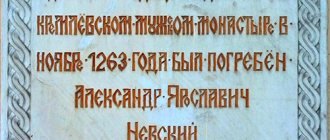Text of prayer Psalm 108
In Church Slavonic
Finally, Psalm to David 1 O God, do not keep silent from my praise, 2 for the mouth of the sinner and the mouth of the flatterer have opened against me, speaking against me with a flattering tongue, 3 and having deceived me with hateful words, and despised me. 4 Instead of loving me, I slandered me, but I prayed, 5 and brought upon me evil for good, and hatred for my love. 6 Place a sinner on him, and let the devil stand at his right hand. 7 Let him always be judged, and let him come out condemned, and let his prayer become sin. 8 Let his days be short, and let another take over his bishopric: 9 Let his sons be orphans, and his wife a widow: 10 Let his sons who move abide and ask, and be driven out of their homes. 11 Let the lender seek all that is his, and let others delight in his labors. 12 Let there be no intercessor for him; let him be the one who takes advantage of his orphans. 13 Let his children be destroyed; let his name be consumed in one generation. 14 Let his father’s iniquity be remembered before the Lord, and let his mother’s sin not be purged. 15 Let them be taken out before the Lord, and let their remembrance be consumed from the earth. 16 I do not remember to show mercy, but the pursuit of man is poor and wretched, and it is with a tender heart to kill. 17 And thou shalt love the curse, and it will come to him, and will not desire the blessing, and will depart from him. 18 And he put on an oath like a robe, and went down like water into his belly, and like oil into his bones. 19 Let him be like a robe, like a robe he will put on, and like a girdle he will be girded with it. 20 This is the work of those who lie against me before the Lord and speak evil against my soul. 21 And thou, O Lord, Lord, do unto me in thy name, for thy mercy is good. 22 Deliver me, for I am poor and wretched, and my heart is troubled within me. 23 Like the shade, when it never evaded, it shook itself off and shook like a prune. 24 My knees are weary of fasting, and my flesh is changed for the sake of oil. 25 And I was reproached by them when they saw me, and shook their heads. 26 Help me, O Lord my God, and save me according to Your mercy, 27 and let them understand that this is Your hand, and You, O Lord, created this. 28 They will be cursed, and You will bless them; those who rise up against me will be ashamed, but Your servant will rejoice. 29 Let those who lie against me clothe themselves with shame, and clothe themselves with their cold as if I were clothed. 30 Let me confess the Lord earnestly with my mouth, and in the midst of many I will praise Him, 31 for He has appeared at the right hand of the poor, to save my soul from those who persecute.
In Russian
For execution. Psalm of David. 1 God, do not remain silent in response to my praise! 2 For the mouth of the sinner and the mouth of the deceitful one were opened against me, they spoke against me with a deceitful tongue, 3 and surrounded me with words of hatred, and fought against me without cause. 4 Instead of loving me, they slandered me, but I prayed; 5 And they repaid me with evil for good and hatred for my love. 6 Set a sinner over him, and let the slanderer stand at his right hand; 7 when he is judged, let him come out condemned, and let his prayer become sin. 8 Let his days be short, and let another take his office; 9 Let his sons be orphans, and his wife a widow; 10 Let his sons wander and wander and beg, and be driven out of their ruins. 11 Let the lender demand all that he has, and let others plunder his labors; 12 Let him have no intercessor, and let him have no mercy on his orphans; 13 Let his children be born to destruction; in one generation let his name be blotted out. 14 Let the iniquity of his fathers be remembered before the Lord, and let not the sin of his mother be blotted out; 15 May they always be before the Lord, and may the memory of them be destroyed from the earth, 16 because he did not think to show mercy and pursued a poor, needy, and broken-hearted man, in order to kill him. 17 And he loved the curse, and it would come to him, and he did not desire the blessing, and it would be removed from him. 18 And he clothed himself with the curse as with a garment, and it went into his bowels like water, and into his bones like oil; 19 Let it be to him like a garment that he puts on, and like a girdle with which he always girds himself. 20 This is the fate of those who slander me from the Lord and speak evil against my soul. 21 And Thou, O Lord, Lord, do unto me for Thy name's sake, for Thy mercy is good. 22 Deliver me, for I am poor and needy, and my heart is troubled within me. 23 Like a shadow when it turns away, I disappeared; they shook me off like a locust; 24 My knees are weak from fasting, and my flesh is changed, for there is no oil. 25 And I became a reproach to them: when they saw me, they shook their heads. 26 Help me, O Lord my God, save me according to Your mercy, 27 and let them know that this is Your hand and You, O Lord, have done this. 28 They will curse, but You will bless; Let those who rise up against me be ashamed, but let Your servant rejoice. 29 Let those who slander me be clothed with shame, and let them clothe themselves with their shame as with a garment. 30 I will earnestly glorify the Lord with my mouth and in the midst of many I will praise Him, 31 for He appeared at the right hand of the poor to save my soul from the persecutors.
Why is the content angry?
The exile David, who is the author of this one of the earliest psalms, describes angry experiences in these verses.
Many may consider such feelings to be purely personal, but there are some other details that need to be known. In fact, through the “works” of the Edomite Doik, the Jewish priests were exterminated, and the author of these stanzas also suffers from this. Some believers see in this text an excessive amount of anger and, let's say, negativity, which may even slightly interfere with the cultivation of love in oneself. However, one should not be embarrassed by this prayer, which can be said, for example, at a service. The human mind is limited, and not much is accessible to our understanding, therefore, when a prayer from Scripture does not correspond to your state of mind, you should treat these words calmly and consider them the written Word of God, which may not always be understandable, but has some deep meaning. Every believer needs to understand the reasons why these lines are so angry, contain responses of divine blessing from infidels, and call for such a significant amount of curses. The author correlates his own will with the will of the Lord. More precisely, he speaks of submission to this will, and his deeds do not differ from the will of the Lord, which is why persecution is perceived so painfully.
The priests also performed the service, but in the end they turned out to be martyrs from a person who did not give blessings to anyone, that is, from Doik. This happens in this world when people who do good suffer, and people who bring harm to others remain in peace.
History of writing
Life for David, the future king of Judah and Israel, was never easy. A thousand years BC, the same internecine wars were going on, brother went against brother, and killing an enemy was considered honorable. David lived honestly and turned to God with requests to punish his enemies. During the reign of King Saul, David's predecessor, the latter had more than once the opportunity to take the throne. If David had killed Saul, he would have become king earlier, but he never even raised his hand against him.
David's Psalm 108 is based on Deuteronomy 28, which describes curses. It is possible that all the words were written for the Jew Doik, who betrayed not only David, but also 300 priests, thereby dooming them to death.
Let's sum it up
In conclusion, let us note when the verses of the psalm should be read. As a rule, its reading is performed at services on major holidays. Believers can include his words in their own prayers, especially in difficult times. It is best to read in Old Church, but have an understanding of Russian, knowing the translation of all the words. It is quite difficult to learn completely at first; even in services, priests most often use the Psalter.
Sources:
- https://ikona-i-molitva.info/psalom-108-otmshhenie-vragam/
- https://pravoslavie.guru/literatura/otmshhenie-vragam-kak-chitat-i-ponimat-108-psalom.html
- https://omolitvah.ru/molitvy/psalom-108/
- https://religiya.guru/molitvy/dlya-chego-proiznosyat-psalom-108-otmshhenie-vragam-i-kak-pravilno-ego-chitat.html
When should you read Psalm 108?
Small misunderstandings or quarrels can happen every day, even a stranger can cause trouble or spoil the mood, but this is not a reason to turn to Psalm 108.
It is important to understand that curses are very powerful and dangerous; using them incorrectly can bring disaster to the one who pronounces them. A person should be brought to God’s judgment by reading Psalm 108 if he sins:
- behaves inappropriately, insults, blasphemes;
- does not want to resolve the conflict peacefully;
- does not listen to the words of the clergy.
Psalm of David 63
- History of writing and meaning of the psalm
- Interpretation of the Psalm
In the life of a Christian, secret and insidious conspiracies are not uncommon, however, any curse is opposed by the protection of the Creator. Psalm of David 63 is the king’s prayer appeal to God with a request to protect him from lies and untruths, to grant the protection and mercy of the Lord.
History of writing and meaning of the psalm
Slander, gossip, untrue rumors are the enemies of man that are very difficult to fight. It is impossible to prove your rightness and innocence everywhere and to everyone.
In Psalm 63, David asks God for protection and help
This problem did not escape King David during the period of his son Absalom’s uprising against him, who, by spreading incredible rumors about cruelty and extortion, tried to undermine his father’s authority and thus weaken his power.
Important! Psalm 63 helps to find inner peace in situations where gossip, false slander and curses surround fear and deprive the life of a righteous person of calm and peace.
Interpretation of the Psalm
At the very beginning of Psalm 63, King David emphasizes that he gives the entire situation around him to God in prayer. Fear of an enemy who spreads rumors and can attack anywhere at any time paralyzes David's life.
1 To the director of the choir. Psalm of David.
2 Hear, O God, my voice in my prayer, preserve my life from the fear of the enemy;
3 Protect me from the plans of the treacherous, from the rebellion of evildoers,
4 who have sharpened their tongue like a sword; strained your bow - a sarcastic word,
5 to secretly shoot at the blameless; they suddenly shoot at him and are not afraid.
6 They were confirmed in their evil intentions, they took counsel to hide the snare, saying: who will see them?
7 They seek out untruths, make investigation after investigation, even to the inner life of a person and to the depths of the heart.
8 But God will strike them with an arrow; suddenly they will be wounded;
9 They will smite themselves with their tongue; all who see them will depart from them.
We advise you to study Which icon to pray to to find your soulmate
10 And all men will fear and proclaim the work of God, and understand that it is His work.
11 But the righteous will rejoice in the Lord and trust in Him; and all the upright in heart will boast.
In verse 3, the psalmist asks God to protect him from evil plans, thereby stopping the rebellion of his son Absalom.
Verse 4 clearly defines the power of gossip, it calls untrue rumors a sword, a sharp tongue a bow, striking straight to the heart, through the word of slander.
Enemies are afraid to offend an innocent person in a public place; they do it secretly, prepare for a long time, and then attack instantly. The priests tried in every way to denigrate Jesus, but they were very afraid of people, so they acted secretly, vilely, using the spread of gossip and bribery of false witnesses.
Secret enemies are much more dangerous than an enemy openly going into battle; their evil thoughts, like sticky nets, envelop the victim, who has no hope of salvation. Deceitful people disguise their actions, confident in impunity, however, one cannot hide from the wrath of the Creator.
With his own prayer and bitter complaint, King David expresses his worries about the treachery of the conspirators.
Psalm 63 Helps Christians Find Inner Peace
Evil people, slanderers do not disdain anything for the sake of their vile plan; in addition to lies, they rummage into the personal life of the one they attack. Absalom knew that the people loved their king, so he was afraid to attack openly, so as not to provoke the people's anger.
David calls himself blameless, of course, the king knew his sins, but in this situation he declares his innocence in the current situation.
Advice! In any situation, you should not try to solve the problem on your own. In prayer and appeal to the Creator, everything can be entrusted to Him.
Once the supporters of the villains will understand their unclean plans, see the defeat of their patrons, fear God and abandon the slanderers. Witnesses of the Lord's punishment will be filled with fear. They will quickly abandon the enemies of the righteous, so as not to become the object of God's wrath.
At the end of Psalm 63 there is praise to the Creator, on whom the king placed all his trust, and hope that God will resolve everything according to His will and that justice will triumph and the righteous will rejoice.
Psalter. Psalm 63
Interpretation of David's Psalm 108
The words of Psalm 108 in Russian contain not only the feelings of the reader, but also curses addressed to his enemy. In many ways, these terrible curses came true for David's enemies, which is why he is considered prophetic.
300 priests were brutally executed, rivers of blood flowed at this time, just as David described. The same thing happened during the persecution of the followers of Jesus Christ. Many try to use the orphanhood of children and the widowhood of wives, the punishments and troubles that David sends to his enemies in Psalm 109 to their advantage. But we must not forget about the prophetic power of these words and condemn people to suffering in vain.
Not everyone knows how to correctly read Psalm 108 “Vengeance on Enemies”; they often pay attention only to its name.
The essence of the song of the Psalms
Even before Orthodoxy was formed as a religion, such a text was used to punish evil people and give them what they deserved. Initially, its purpose was aimed at punishing the traitor of Jesus Christ - Judas. Often it could also be used to punish criminals whom justice could not reach.
But everything changes over time. The meaning of this text was no exception. Nowadays, clergy are increasingly asking to try to get along with the warring side and only if it doesn’t work out, then try to forgive and understand the offender. But if the enemy still doesn’t stop, then you can apply Psalm 108 of David, “Vengeance on Enemies.”
Reading rules
The first thing to do before reading Psalm 108 is to calm down. To do this, you can read “Our Father.” Only in peace can one assess whether a person deserves the curses that will be in store for him. It is important to understand that only God will decide whether the enemy deserves punishment, and if he is innocent, all horrors will return to the one who sent them.
Psalm 108 can be found in the prayer book, since it is not corruption - by reading it, a person gives judgment to God, and does not administer it himself. And yet you cannot refer to this text on Sundays and Christian holidays.
( 6 ratings, average: 4.83 out of 5)
Reviews of the Holy Fathers about Psalm 108
The Holy Fathers and church preachers more than once turned to Psalm 108; St. John Chrysostom, St. Athanasius the Great, St. Theophan the Recluse, Archbishop Irenaeus of Courland.
Here the power of punishment and the duration of torment are shown, and at the same time it is suggested that the misfortunes of all people come from themselves, from their own guilt, when by their deeds and actions they themselves reject goodness and subject themselves to punishment.
St. John Chrysostom
This psalm depicts the suffering of Christ and future punishments for Judas and the Jewish people. One should know that everything said in the psalm in the form of a desire is said prophetically.
St. Athanasius the Great
The Holy Spirit raises up the wrath of David, and equips his tongue to express the punishments of God, so that the unrighteous of all times will see what they stand for, and what would have been done to them, if not for the mercy of God
St. Feofan the Recluse
Reflections on the psalm continue today. Various kinds of sorcerers and psychics are trying to teach their clients how to get rid of enemies with the help of the Psalter, describing the rituals of reading Psalm 108 to curse their neighbors. In order not to make a terrible mistake , you should remember the words with which David begins his Book of Psalms:
“Blessed is the man who does not listen to the advice of sinners and does not follow the examples of the wicked».
Psalm 108, text read by A. Bondarenko (Russian version): https://vimeo.com/14984163
Listen to Psalm 108 in Church Slavonic:









